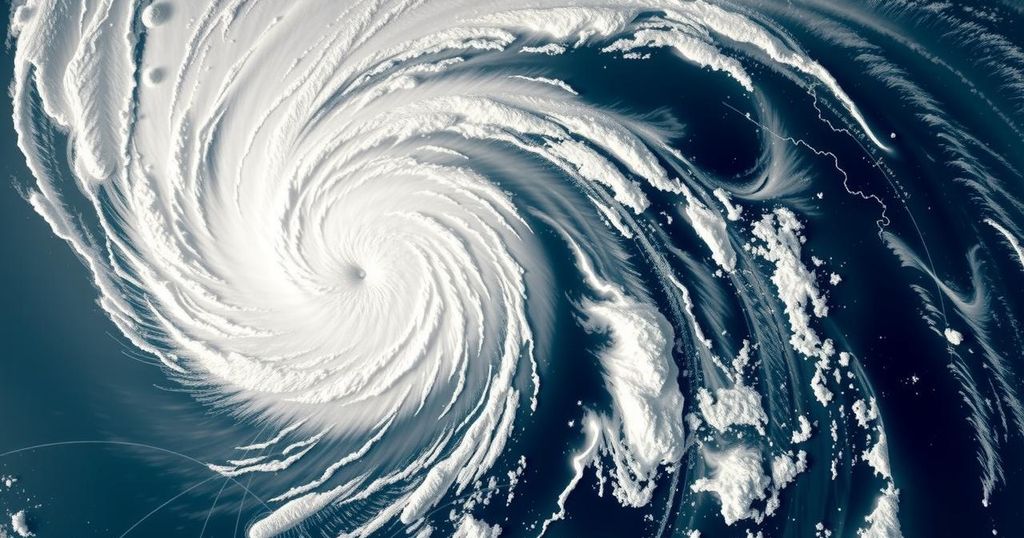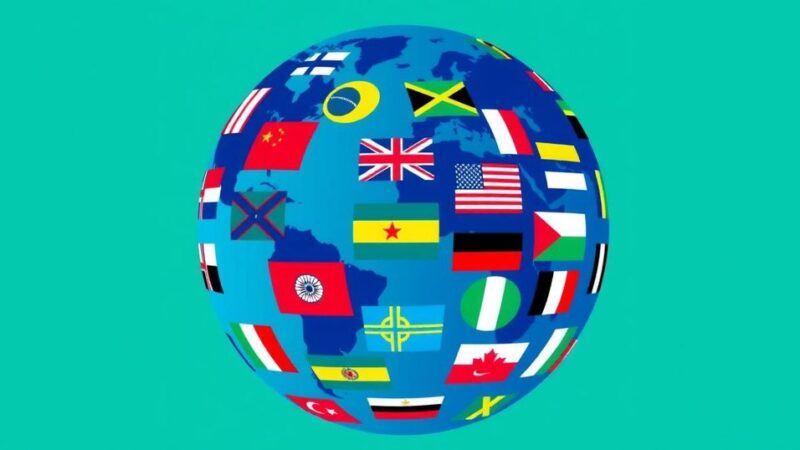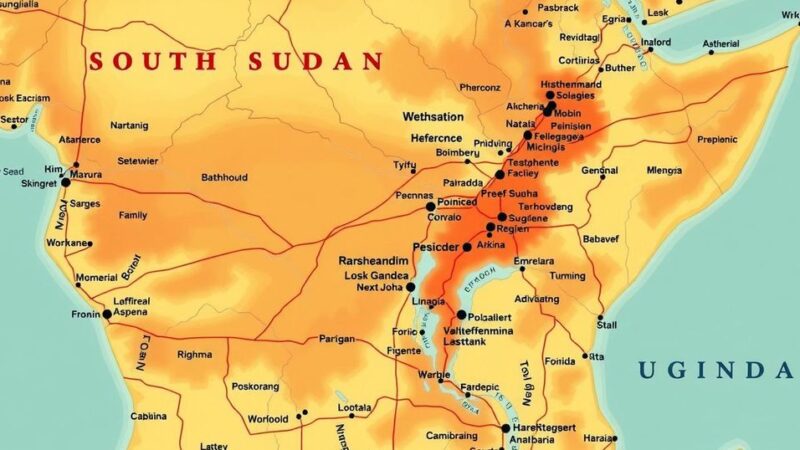Tropical Cyclone Chido has severely affected Mayotte, causing substantial damage without casualties reported. Officials have heightened alerts and are mobilizing rescue efforts as the cyclone is expected to impact Mozambique and neighboring Comoros. Historical trends reveal an exacerbating impact of climate change on such cyclones, leading to humanitarian challenges in southern African nations.
Tropical Cyclone Chido has caused significant destruction in Mayotte, a French territory situated in the Indian Ocean. Officials reported that the storm, packing wind speeds exceeding 220 kilometers per hour, severely impacted the region, tearing roofs off homes across the two main islands. While immediate casualties were not reported, Mayotte Prefect Francois-Xavier Bieuville warned of widespread devastation, stating, “Our island is being hit by the most violent and destructive cyclone since 1934. Many of us have lost everything.”
Emergency services have been activated as Mayotte remains on red alert for its residents, who are urged to take refuge in sturdy shelters. The French Interior Minister, Bruno Retailleau, remarked on the extensive damage already visible in the island territory and indicated that local and state rescue operations are fully mobilized. Thousands have lost power, with numerous homes and structures damaged or destroyed. A contingent of 110 rescuers and firefighters has been deployed to Mayotte, with an additional 140 scheduled to arrive soon to provide assistance.
Additionally, the nearby nation of Comoros is also facing the fury of Cyclone Chido, with heightened alerts issued in several regions. Authorities are particularly concerned about the well-being of eleven fishermen who have been unaccounted for since Monday. In response to the cyclone, Comoros has taken preventive measures by halting shipping activities, closing the main airport, and shutting down government offices and schools to prioritize public safety.
Forecasts indicate that Cyclone Chido is on track to reach Mozambique by late Saturday or early Sunday, posing a threat to up to 2.5 million people in the northern provinces of Cabo Delgado and Nampula. Further inland, both Malawi and Zimbabwe are preparing for potential flooding and have issued advisories urging residents to evacuate or seek higher ground when necessary. Cyclone season in the southeastern Indian Ocean spans from December to March, during which southern Africa has experienced multiple severe storms in recent years.
Historically, Cyclones Idai and Freddy have had catastrophic effects, leading to substantial loss of life and extensive humanitarian crises. Furthermore, the cyclones not only heighten risks of flooding and landslides but can also create stagnant water pools, leading to outbreaks of waterborne diseases such as cholera, dengue fever, and malaria. As climate change exacerbates these cyclonic events, poorer nations in southern Africa face increased vulnerability to crises, despite their minimal contributions to global climate change.
Tropical cyclones, particularly in the south-eastern Indian Ocean, pose significant threats during the cyclone season from December to March. Historical storms have resulted in severe humanitarian crises in southern African countries, causing fatalities, infrastructure damage, and outbreaks of waterborne diseases. The increasing severity of storms is attributed to climate change, leading to concerns about the long-term impacts on vulnerable nations that contribute little to the phenomenon.
In summary, Tropical Cyclone Chido has wrought havoc on Mayotte and is poised to impact neighboring regions, including Mozambique and Comoros. With extensive damage to infrastructure and homes, the administrations of Mayotte and Comoros are mobilizing emergency responses. The anticipation of flooding and potential disease outbreaks further underscores the urgency for relief efforts. Climate change continues to intensify the severity of cyclones, thus placing additional strain on already vulnerable populations in southern Africa.
Original Source: www.voanews.com






